Eight NRI engineers
elected highest professional distinctions honored
List of US National Academy of Engineering (NAE) this year
Washington, Feb 26, 2004
The National Academy of Engineering (NAE) has elected 76 new members and 11 foreign associates, NAE President Wm. A. Wulf announced today. This brings the total U.S. membership to 2,174 and the number of foreign associates to 172.
Election to the National Academy of Engineering is among the highest professional distinctions accorded to an engineer. Academy membership honors those who have made "important contributions to engineering theory and practice, including significant contributions to the literature of engineering theory and practice," and those who have demonstrated accomplishment in "the pioneering of new fields of engineering, making major advancements in traditional fields of engineering, or developing/implementing innovative approaches to engineering education."
- Arup K. Chakraborty, Warren and Katherine Schlinger Distinguished Professor and Chair, department of chemical engineering, University of California, Berkeley.
For the application of theoretical chemistry to practical problems, including immune system recognition, polymer interfaces, sensor technology, and catalysis
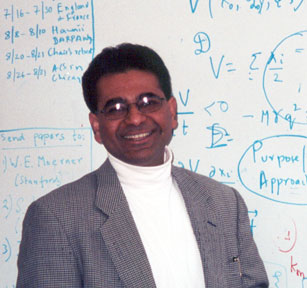
Biography- Professor; B.T. Chemical Engineering, Indian Institute of Technology (1983); Ph.D. in Chemical Engineering, University of Delaware (1988); postdoctoral fellowship, University of Minnesota;professor, Department of Chemical Engineering, University of California, Berkeley; professor, Department of Chemistry (1997); Allan P. Colbun Award of the American Institute of Chemical Engineers (AIChE); Camille Dreyfus Teacher-Scholar Award; National Young Investigator Award; Miller Research Professorship; ICI Fellowship of the Royal Academy of Engineering (U.K.); and a Shell Young Faculty Professorship.
Research Interests
Research in my group focuses on the development and use of quantum and statistical mechanical approaches to elucidate complex phenomena pertinent to systems that are of pragmatic importance. Within this central theme, work in my group encompasses four broad areas: [1] Cell-Cell Recognition in the Immune System, [2] Polymer Science and Engineering, [3] Sensor Technology for Pathogen Detection, and [4] Heterogeneous Catalysis. Sophisticated theoretical and computational methods are developed in my group to study problems in each of these areas. Our work is closely synergistic (often collaborative) with the world's leading experimental researchers in these fields. My research represents a crossroads of various disciplines, and the twelve doctoral students and postdoctoral fellows in my group are drawn from disciplines that include chemical
Rakesh K. Jain, director, Edwin L. Steele Laboratory, department of radiation oncology, Massachusetts General Hospital, Boston.
For the integration of bioengineering with tumor biology and imaging gene expression and functions in vivo for drug delivery in tumors.
Rakesh K. Jain, Ph.D.
Andrew Werk Cook Professor of Tumor Biology

Education
Institution Degree Year Field of Study
Indian Institute of Technology/Kanpur B.Tech. 1972 Chemical Engineering
University of Delaware M.Ch.E. 1974 Chemical Engineering
University of Delaware Ph.D. 1976 Chemical EngineeringResearch Interests
Tumor pathophysiology and Bioengineering: Molecular, cellular, anatomical and functional imaging, tumor angiogenesis and microcirculation, tumor-host interactions, tumor microenvironment, vascular and interstitial transport in tumors, delivery of molecular and cellular medicine to tumors, mathematical modeling.
Professional Appointments1976-1978 Assistant Professor of Chemical and Biomedical Engineering
Columbia University, New York, NY
1978-1979 Assistant Professor of Chemical and Biomedical Engineering
1979-1983 Associate Professor of Chemical and Biomedical Engineering
1983-1991 Professor of Chemical and Biomedical Engineering
Carnegie Mellon University, Pittsburgh, PA
1991- Andrew Werk Cook Professor of Tumor Biology
Department of Radiation Oncology, Harvard Medical School, Boston, MA
1991- Director, Edwin L. Steele Laboratory for Tumor Biology
Department of Radiation Oncology, Massachusetts General Hospital, Boston, MA
1991- Affiliated Faculty, Harvard-MIT Division of Health Sciences and Technology,
Massachusetts Institute of Technology, Cambridge, MA
1995- Member, Biological and Biomedical Sciences Program, Harvard Medical School
Visiting Professorships
7/83 - 12/83 Visiting Professor of Chemical Engineering
Massachusetts Institute of Technology, Cambridge, MA
1/84 - 4/84 Visiting Professor of Bioengineering
University of California, San Diego, La Jolla, CA
4/84 - 6/84 Visiting Professor of Radiology
Stanford University Medical School, Stanford, CA
8/90 - 1/91 Visiting Professor of Pathophysiology
University of Mainz, Mainz, Germany
2/91 - 5/91 Visiting Professor of Surgical Research
University of Munich, Munich, GermanyAwards and Honors
1979 George Tallmann Ladd Award, Carnegie Mellon University
1980-1985 Research Career Development Award, National Cancer Institute
1983 B.F. Ruth Lecturer, Iowa State University, Ames
1983 Allan P. Colburn Lecturer, University of Delaware, Newark
1983-1984 Guggenheim Fellow
1984 Research Award, International Institute for Microcirculation
1986 Hugh C. Muldoon Lecturer, Duquesne University, Pittsburgh
1990 Abbott Microcirculation Award, European Society for Microcirculation
1990-1991 Senior Scientist Award, Alexander von Humboldt Foundation, Germany
1992 Founding Fellow, American Institute for Medical and Biological Engineering
1992 Kurt Wohl Lecturer, University of Delaware, Newark
1993, 1994 Instrumentation for Physiology and Medicine Award, American Microcirculation Society
1993-2000 Outstanding Investigator Grant, National Cancer Institute
1994 Distinguished Alumnus Award, Indian Institute of Technology, Kanpur
1995 Whitaker Distinguished Lecturer, Biomedical Engineering Society
1996 Eugene M. Landis Award, Microcirculatory Society
1996-1999 Board of Directors, Biomedical Engineering Society
1999 William D. Kaplan Lecturer in Nuclear Medicine, Harvard Medical School
1999 Berkeley Lecturer, University of California, Berkeley
2000 Bioengineering Award, American Institute of Chemical Engineers
2001 Honorary Fellow, Indian Institute of Chemical Engineers
2002 Gerritsen Award, Microcirculatory Society
2003 Alumni Wall of Fame, University of Delaware
2003 The Institute of Medicine, National Academy of Sciences
Pradman P. Kaul,
Chairman and chief executive officer,
Hughes Network Systems Inc., Germantown, Md.
( leadership in the development of satellite communication networks)

Pradman P. Kaul, Chairman of Hughes Software Systems is also the Chairman and Chief Executive Officer for Hughes Network Systems, a 1.4 billion dollar (US) division of Hughes Electronics Corporation.
Among other responsibilities, Mr. Kaul oversees all Hughes enterprises in India, which include Hughes Software Systems, Hughes Network Systems India, Hughes Escorts Communications Ltd., and Hughes Tele.Com.
Previously, Mr. Kaul has served as Executive Vice President and Chief Operating officer as well as Director of Engineering. In this role, he oversaw the development of new digital communications equipment for handling voice, data and television systems.
Playing a pioneering role in the satellite industry, which saw Hughes Network Systems conceiving the COMSAT and VSAT technology, Mr. Kaul has a number of patents to his name.
Bringing a keen sense of strategy, technology and market focus, Mr. Kaul has led Hughes into the world of mobile satellite communication systems (mobilsat).
Among others, his achievements in pioneering the first commercial operation of TDMA system in the world as Program Manager for the Telesat TDMA System that was installed in Canada in January 1975 and his technological innovation in transmitting color television signals using various bit reduction techniques as manager of the High Speed Logic Program at COMSAT Laboratories in Clarksburg, Maryland are remarkable.
Mr. Kaul believes in building a tradition of excellence through a commitment to innovation and technological leadership, a vision that has driven growth of the company from $90 million to over a billion dollar enterprise in 1997.
Mr. Kaul received a Masters Degree in Electrical engineering from the University of California at Berkeley and a Bachelors Degree in Electrical Engineering from The George Washington University. He has written many works on the technology of satellite communications.
Member, Board of Directors of the University of Maryland Foundation
Member, National Advisory Council, George Washington University
Member, Advisory Board of Knowledge Cube, Inc.
Charter Member, The Indus Entrepreneurs/TIE - India CEO High Tech Council
Chairman of the Board, Hughes Software Systems - Publicly listed company
Member, Board of Directors, Optimos
Kishor C. Mehta,
P.W. Horn Professor of Civil Engineering and director,
Wind Engineering Research Center, Texas Tech University, Lubbock.S
Systematic studies of structural damage caused by windstorms and leadership in the development of structural design standards for wind loads.
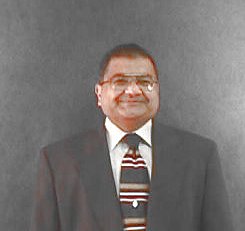
Education
B.S.E in Civil Engineering, The University of Michigan, 1957
M.S.E in Civil Engineering, The University of Michigan, 1958
Ph.D. in Civil Engineering, The University of Texas, 1965General Background
Dr. Mehta has developed a unique ability to bring experts from several disciplines together and focus their attention on a complex interdisciplinary problem. He is Director of the NSF-funded Cooperative Program on Wind Engineering (with Colorado State University) and the NIST/TTU Cooperative Program for a Windstorm Mitigation Initiative. These programs include faculty from civil, chemical, and mechanical engineering, atmospheric sciences, architecture, mathematics and economics. His experiences as Interim Dean of the College of Engineering and Director of WISE have given him an understanding of how to champion an interdisciplinary team.Dr. Mehta is recognized nationally and internationally as an authority in the field of wind loads on structures and wind engineering. He has devoted the last twenty-nine years of his professional career to teaching, conducting research, offering short courses and seminars, and consulting for problems relating to wind loads. As chairman of the task committee on wind loads of the American National Standards Institute Committee A58 and of the American Society of Civil Engineers Committee ASCE 7, he played a major role in the development of the wind load provisions of ANSI A58.1-1982, ASCE 7-88, and ASCE 7-95. He has been a board member of the American Association for Wind Engineering since 1976, and was elected in 1985 to a four-year term as President of the organization. Recently he was selected as Chairman of the International Association for Wind Engineering for a four-year term (ending in 2003). He is past chairman of the National Research Council Committee on Natural Disasters. This involvement has provided him with an understanding of the latest developments in the field of wind engineering and of their real-world application.
Dr. Mehta has provided specialized consulting services for wind load-related problems to organizations such as NCR Corporation, Indiana Bell, Burns & McDonnell, Brown & Root, NASA, and others. His research and consulting experience have helped him to develop guidelines and standards for wind loads, site specific design basis wind speeds, and tornado-resistant design for shelters and building functions. He has shared his expertise and enthusiasm with students and professionals over the years. He teaches a yearly short course in engineering for extreme winds as well as frequent short courses across the nation for ASCE. He receives numerous inquires from professionals relating, in particular, to application of ASCE 7-95. Dr. Mehta’s philosophy of guiding students to follow their own inquisitiveness into effective research has garnered him praise from his graduates and honors from the university.
Professional Chronology
Design Engineer, Merritt-Chapman and Scott Corp., New York City and Glen Canyon Dam, Arizona (1958-61); Research/Teaching Assistant, University of Texas at Austin (1961-64); Horn Professor of Civil Engineering, Texas Tech University (1964-present), Director, Wind Science and Engineering Research Center (1988-present); Interim Dean of College of Engineering (1994-95).Memberships
Chairman, International Association for Wind Engineering; Past-Chairman, ASCE Task Committee on Wind Loads; Past-President, American Association for Wind Engineering; Past-Chairman, National Research Council Committee on Natural Disasters; ASCE Committee on Electrical Transmission Structures; ASCE Committee on Aerodynamics; Steering Committee for National Multihazard Mitigation Council, Wind Damage Mitigation Committee of Insurance Institute for Property Loss Reduction; American Meteorological Society; American Concrete Institute; American Society of Civil Engineers (Fellow); Sigma Xi, Chi Epsilon, National Society of Professional Engineers, Registered Professional Engineer (Texas).Awards
Honorary Membership in ASCE, Distinguished Service National Hurricane Conference Award, Who’s Who in America, Strathmore’s Who’s Who, Engineering Award from the National Hurricane Conference; AAWE Award of Appreciation, P.W. Horn Professor of Texas Tech University, Halliburton Education Foundation Award of Excellence
Siva S. Banda,
Senior scientist and leader, Control Science Center of Excellence, Air Force Research Laboratory,
Wright-Patterson Air Force Base, Ohio.
For leadership in the development of multivariable control theory and its applications to an array of military vehicles
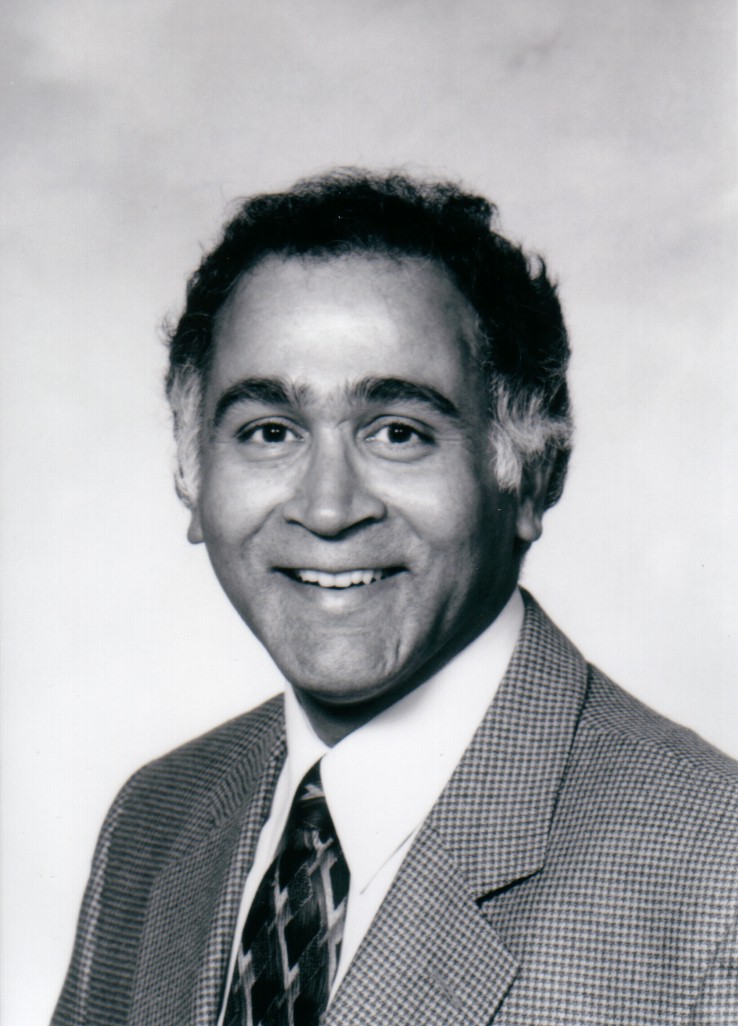
Dr. Siva S. Banda is a senior scientist at the Air Force Research Laboratory (AFRL), Wright-Patterson Air Force Base, Ohio, USA. He performs and directs research and development activities at the AFRL Center of Excellence in Control Science. His primary responsibility is the transition of basic research results from control theory to the aerospace industry.
Dr. Banda has written or co-written more than 160 archival articles and nine technical reports and books, and he has delivered more than 60 invited lectures. He is a technical adviser to the Air Force Office of Scientific Research, Office of Naval Research, National Aeronautics and Space Administration, National Research Council and several leading academic institutions worldwide. He served as an Associate Editor of the IEEE Transactions on Control Systems Technology, an editor of the International Journal of Robust and Nonlinear Control, and an editor of the Journal of Guidance, Control and Dynamics. He is the Vice Chair for the contributed papers of the 2001 American Control Conference, the General Chairman of the 2002 AIAA Guidance, Navigation and Control Conference, and a former board member of the American Automatic Control Council.
He is a Fellow of the Air Force Research Laboratory, American Institute of Aeronautics and Astronautics and the Royal Aeronautical Society. He is the recipient of the 2000 IEEE Control Systems Technology Award.
Dr. Siva S. Banda who leads the Control Science Center of Excellence, at the AFRL, where he performs and directs basic and applied research that supports the future vision of the Air Force. His primary responsibility is the transition of basic research results from control theory to the aerospace industry. After high-level discussions with Air Force operational personnel in the Air Combat Command, Dr Banda’s task is to translate the future Air Force operational needs into a list of future technologies by enlisting the broader academic community. This is at the heart of Dr Banda’s mission. His current research efforts focus on autonomous and cooperative control of multiple unmanned air vehicles, guidance and control of transatmospheric vehicles, aerodynamic flow control and formation control of micro satellite clusters.
Banda says that the Air Force interest in access to space and NASA’s focus on the development of the next generation of reusable launch vehicles has provided new opportunities for researchers to develop technologies that support the objectives of civilian and military space programs. He recently solicited proposals from scientists that will reduce development costs, reduce turn-around time and increase overall vehicle safety and reliability.
After earning a bachelors degree in electrical engineering from Regional Engineering College, Warangal (1974), Banda went on to earn his Ph.D (1980) in aerospace engineering, from the University of Dayton, Ohio. Since then he has been at WPAFB beginning his career as an aerospace research engineer and moving step by step to a leadership role at the AFRL.
Rajagopal Raghavan
Senior staff associate (retired), Phillips Petroleum Co., Tulsa, Okla.
For pioneering contributions to the interpretation of pressure data in wells to improve the definition, engineering, and production of complex oil and gas reservoirs.
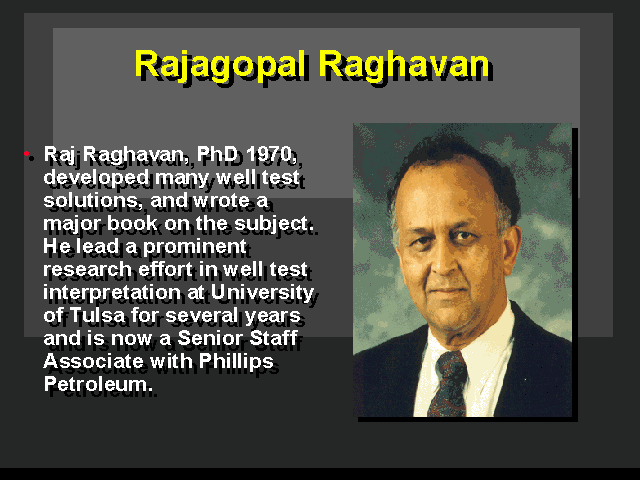
Rajagopal Raghavan, Senior Staff Associate, Phillips Petroleum Co., is honored for his many years of dedicated leadership and service in the Society and the petroleum engineering profession. An active SPE member at both the section and national levels since joining in 1967, Raghavan is a recipient of the 1981 Distinguished Achievement Award for Petroleum Engineering Faculty and the 1988 Reservoir Engineering Award. He served as Chairperson of the 1986, 1989, and 1999 Forum Series in North America Steering Committees and was recently a member of the Forum Series Coordinating Committee and Forum Series Implementation Committee. Raghavan was also a member of the 1995 Forum Series in Asia Pacific Steering Committee and a keynote speaker at that meeting. As a Technical Editor on the Editorial Review Committee for many years, he served as Review Chairperson during 1984-86 and Executive Editor during 1997-99. He is also a former Chairperson of the Education and Accreditation Committee and the Symbols and Metrication Committee, and he was a 1990-91 Distinguished Lecturer. Raghavan has authored or coauthored more than 90 technical papers, many of them SPE papers.
Before assuming his current position in 1990, Raghavan spent the majority of his career in teaching and research positions at Texas A&M U., the U. of Tulsa, and Stanford U. His research interests include well-test analysis, reservoir simulation, geothermal reservoirs, and rock compaction. In addition to SPE, he is a member of the New York Academy of Sciences and the American Geophysical Union. Raghavan holds a BS degree in electrical engineering from the Birla Inst. of Technology in India, a BS degree in petroleum engineering from the U. of Birmingham, and a PhD degree in petroleum engineering from Stanford U.
Shivaji Sircar,
Professor of practice, chemical engineering department, Lehigh University, Bethlehem, Pa.
For contributions to the fundamental science and technology of adsorption separations and their applications in process industries.- Professional Progress Award 1988, Presented by the
American Institute of Chemical Engineers.

Sircar retired last year as chief scientist in the adsorption science division at Air Products and Chemicals Inc. after a 29-year career with the firm. He holds 56 U.S. and 65 international patents, and has authored 157 technical publications and 123 technical presentations.
Sircar is a member of the advisory boards of the journals “Adsorption,” “Adsorption Science and Technology,” and “Industrial and Engineering Chemistry Research.” He received the Professional Progress Award from the American Institute of Chemical Engineers in 1988 and the Industrial Gases Technology Award from AIChE in 2001. That same year, a session in adsorption was dedicated in his honor at AIChE’s annual meeting
Vijay Vittal,
Harpole Professor, department of electrical and computer engineering, Iowa State University, Ames.
For improvements in real-time control and dynamic security assessment for electric power systems
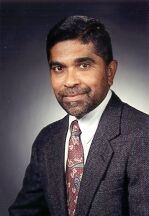
Education
Ph.D. Electrical Engineering, Iowa State University, Ames, IA, 1982
M. Tech. Indian Institute of Technology, Kanpur, India, 1979
B.E. B.M.S. College of Engineering, Bangalore, India, 1977
Academic Experience
1993-1994 Program Director for Power Systems,
National Science Foundation, Division of Electrical & Communication Systems, Washington, DC1986-1990 Associate Professor, Electrical and Computer Engineering Department, Iowa State University, Ames, IA
1982-1986 Assistant Professor, Electrical and Computer Engineering Department, Iowa State University, Ames, IA
Honors & Awards
2000 Outstanding Power Engineering Educator Award, Power Engineering Society,
Institute of Electrical and Electronics Engineers.
2000 Warren B. Boast Undergraduate Teaching Award.
Departmental Award for Student Recognition of Outstanding Classroom Performance.
1997 Elected Fellow of the Institute of Electrical and Electronics Engineers.
1989 Young Engineering Faculty Research Award, presented by the College of Engineering,
Iowa State University.
1988 Faculty Award of Excellence, Presented annually by the NCR Corporation to recognize outstanding contributions to the Academic Education of Electrical Engineering Students.
1985 Presidential Young Investigator Award, received from the President of the United States in recognition of research and teaching abilities.
Text Books or Chapters in Books
Fouad, A. A., and V. Vittal, Power System Transient Stability Analysis Using the Transient Energy Function
Method, Prentice Hall, New Jersey, 1992.
Bergen, A. R., and V. Vittal, Power System Analysis, Prentice Hall, New Jersey, 2000.
V. Vittal, The Electric Power Engineering Handbook, L. L. Grigsby, Editor and Chief, “Direct Stability
Methods,” pp. 11-42 – 11-54, CRC Press, Boca Raton, Florida, 2001